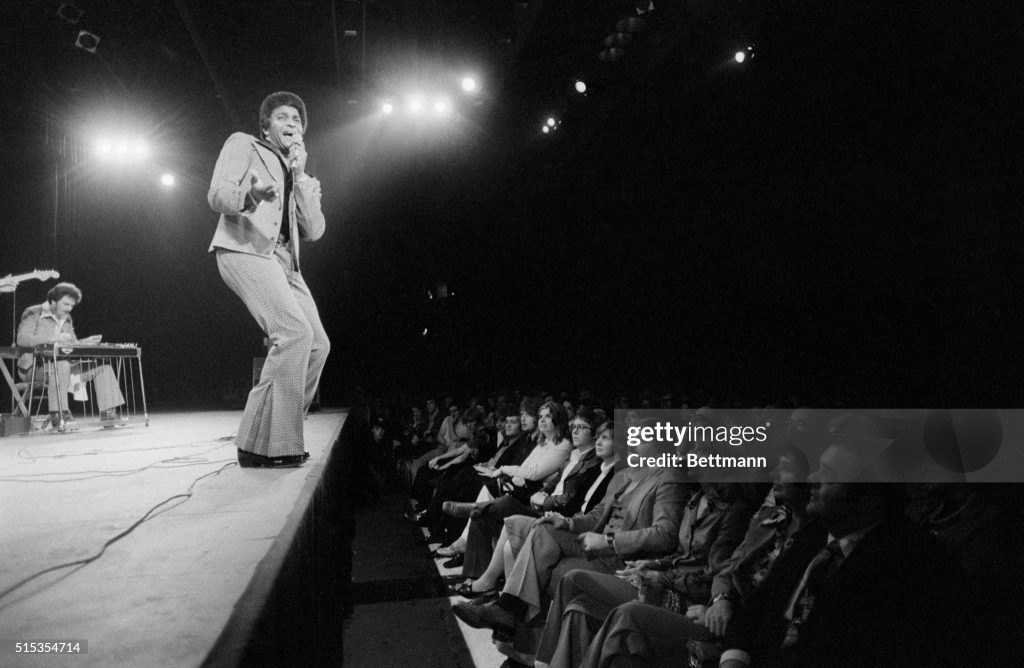
A Reflection on Lost Love and Social Divide
“Crystal Chandeliers” by Charley Pride is a poignant exploration of love’s fragility against the backdrop of social ambition and materialism. Released in 1967 as part of his album “The Country Way”, this song quickly became one of Pride’s signature hits, resonating deeply with audiences and climbing the charts to become a staple in his illustrious career. Though it did not chart on the Billboard Hot 100, its impact was undeniable in the country music scene, where it soared into the hearts of listeners who found solace in its melancholic yet beautiful melody.
The narrative woven by Charley Pride in “Crystal Chandeliers” speaks to a universal human experience—one where love and genuine connection are often overshadowed by the glittering allure of wealth and status. This theme is encapsulated in the imagery of the “crystal chandeliers”, serving as a metaphor for superficial opulence that ultimately fails to bring true happiness or fulfillment. For older generations, this song may evoke memories of simpler times, where relationships were cherished over material possessions—a stark contrast to today’s fast-paced, consumer-driven world.
Charley Pride, one of country music’s first African American stars, brought a unique voice to the genre during a time when racial barriers were still very much present. His smooth baritone and heartfelt delivery allowed him to transcend these barriers, drawing listeners from all walks of life into his musical storytelling. His rendition of “Crystal Chandeliers” stands out not only for its lyrical depth but also for its ability to bridge cultural divides through its universal message.
The song tells the story of a man reflecting on a lost love who chose wealth over their relationship. The imagery of “crystal chandeliers” serves as both a literal and figurative representation of what she chose over him. It’s a tale as old as time—love lost to the pursuit of social status, leaving behind a trail of regret and longing. As Pride sings about these grandiose symbols that light up her life now, there’s an underlying sense of irony; these chandeliers might shine brightly, but they cast shadows over what truly matters.
For those who have lived through similar experiences, “Crystal Chandeliers” strikes a chord that resonates with the melancholy realization that true happiness cannot be bought or measured by material success. It’s a reminder that while life can be adorned with glittering trinkets, it’s the intangible connections with others that bring genuine joy and fulfillment.
Reflecting on the era when this song was released, one cannot overlook the societal changes that were beginning to take root. The late 1960s were a time of great upheaval and transformation in America, with movements for civil rights and equality gaining momentum. In such a context, Charley Pride’s success was groundbreaking, challenging societal norms and paving the way for future artists across genres.
Listening to “Crystal Chandeliers” today offers not just a trip down memory lane but also an opportunity to reflect on personal values and priorities. It urges listeners to consider what truly illuminates their lives—is it the dazzling allure of crystal chandeliers or the warm glow of genuine human connection?
For older audiences who may have witnessed both personal and societal shifts over decades, this song serves as a testament to enduring truths amidst changing times. It is both a nostalgic reminder and an enduring anthem that continues to resonate with anyone who has ever faced the bittersweet choice between love and materialism.
In conclusion, Charley Pride’s “Crystal Chandeliers” remains a classic piece of musical storytelling—a beautifully crafted lamentation on love lost to superficial pursuits. Its haunting melody and evocative lyrics invite listeners into a reflective space where they can ponder their own life choices and remember that while chandeliers may sparkle brilliantly from above, it is often the simple things below them that hold true value.